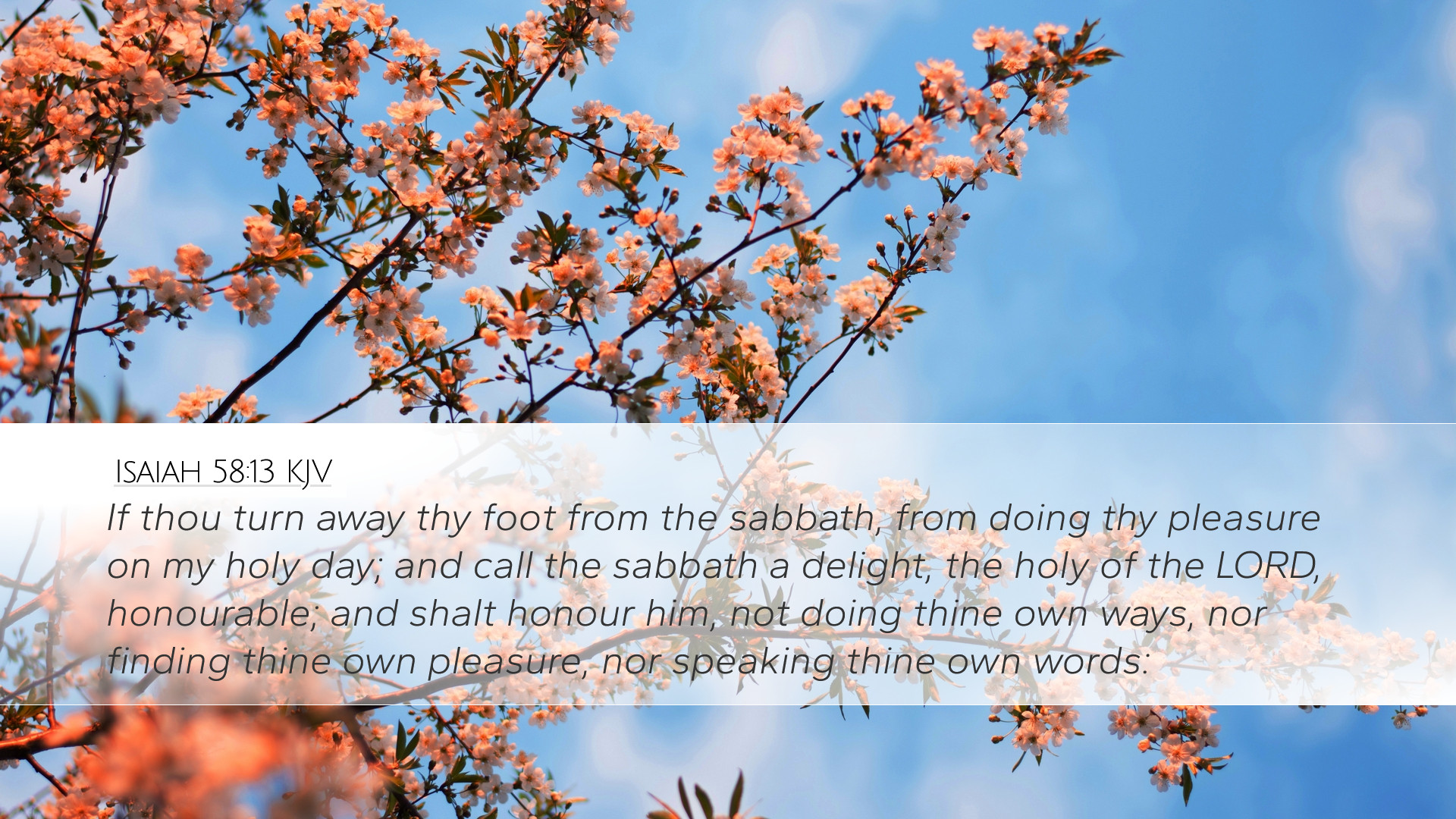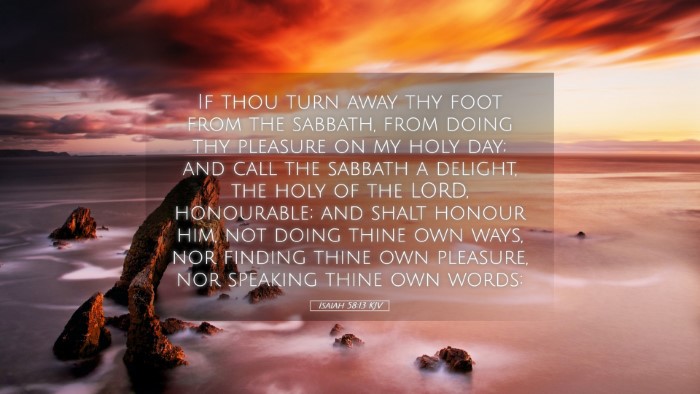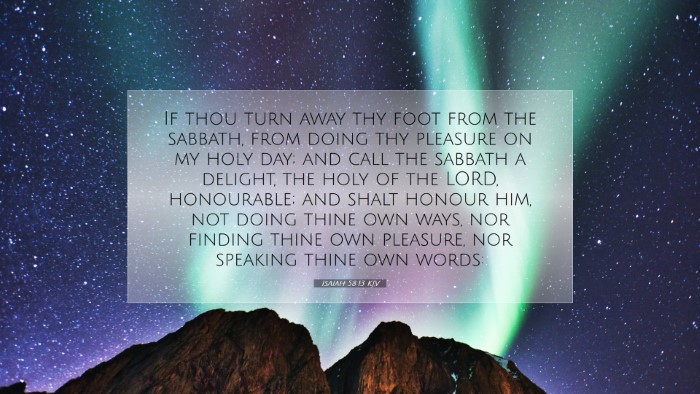Commentary on Isaiah 58:13
Bible Verse: “If you turn back your foot from the Sabbath, from doing your pleasure on my holy day, and call the Sabbath a delight and the holy day of the Lord honorable; if you honor it, not going your own ways, or seeking your own pleasure, or talking idly;” (Isaiah 58:13, ESV)
Introduction
The passage of Isaiah 58:13 embodies a critical teaching on the observance and significance of the Sabbath. In this verse, the Lord underscores the importance of dedicating the Sabbath to Him instead of treating it as an ordinary day. Scholars from various public domain commentaries reveal rich insights into the meaning behind this verse, helping to alleviate misunderstandings about the Sabbath's true essence.
Understanding the Context
The broader context of Isaiah 58 critiques hollow religious practices, drawing attention to the need for genuine worship that is manifested in compassionate living. The preceding verses emphasize social justice and the inability of ritualistic fasting to substitute the essence of sincere faith and moral obligation. In this context, the Sabbath is not just a day of rest but a day reflecting one's relationship with God and others, which is foundational for His people.
Insights from Matthew Henry
Henry offers a rich meditative approach to Scripture, highlighting that true observance of the Sabbath results not only from abstaining from work but from elevating the day as a time for spiritual enrichment.
- Delight in the Sabbath: Henry emphasizes that calling the Sabbath a delight requires a change of heart. It should be seen as a joyful engagement with God rather than an obligatory cessation from activity.
- Honoring the Day: He notes that the Sabbath must evoke honor, aligning one's actions with God's desires. This transcends mere physical rest and encompasses spiritual engagement, prayer, and worship.
Insights from Albert Barnes
Barnes focuses on the implications of “turning back your foot from the Sabbath,” which denotes a call to reflect on one’s activities on this sacred day:
- Relinquishing Personal Desires: Barnes suggests that the Sabbath is dishonored when personal pleasures are prioritized over divine worship or community welfare.
- Social Responsibility: He stresses that honoring the Sabbath correlates with honoring God through acts of kindness and justice towards others, reinforcing that true worship is manifested in action.
Insights from Adam Clarke
Clarke provides further exposition on the original Hebrew terms used in this verse, suggesting that the language reflects a covenantal relationship between God and His people:
- Covenantal Significance: Clarke emphasizes that the Sabbath is a sign of the covenant between God and Israel, providing a rhythm of holy time that shaped their identity.
- Generational Value: He encourages the understanding that maintaining Sabbath observance is integral not just for the individual, but as a witness to future generations of God's holiness.
Theological Implications
This verse invites serious theological reflection on the nature of the Sabbath:
- Rest as a Divine Pattern: The Sabbath represents a model instituted by God at creation, reaffirming that humanity's rhythm should include rest and contemplation of God's work.
- Joy in Worship: Understanding the Sabbath as a source of delight aligns with New Testament themes where Jesus urges a deeper understanding of the law and its fulfillment in love and mercy.
Application for Pastoral Ministry
Pastors and community leaders can derive several important applications from Isaiah 58:13:
- Leading by Example: Pastors should model how to honor the Sabbath day through their own practices and encourage congregational engagement with the broader dimensions of rest and worship.
- Teaching on the Importance of the Sabbath: Educating congregants on the significance of the Sabbath in terms of both physical rest and spiritual rejuvenation is crucial for holistic ministry.
Conclusion
Isaiah 58:13 invites believers to reevaluate their understanding of sacred time and to restore the delight and honor due to the Sabbath. This restoration not only impacts individual spirituality but also shapes the quality of community life among believers. By weaving together the insights from Henry, Barnes, and Clarke, one can appreciate the multifaceted nature of the Sabbath as a divine gift that promotes both personal and communal holiness.


